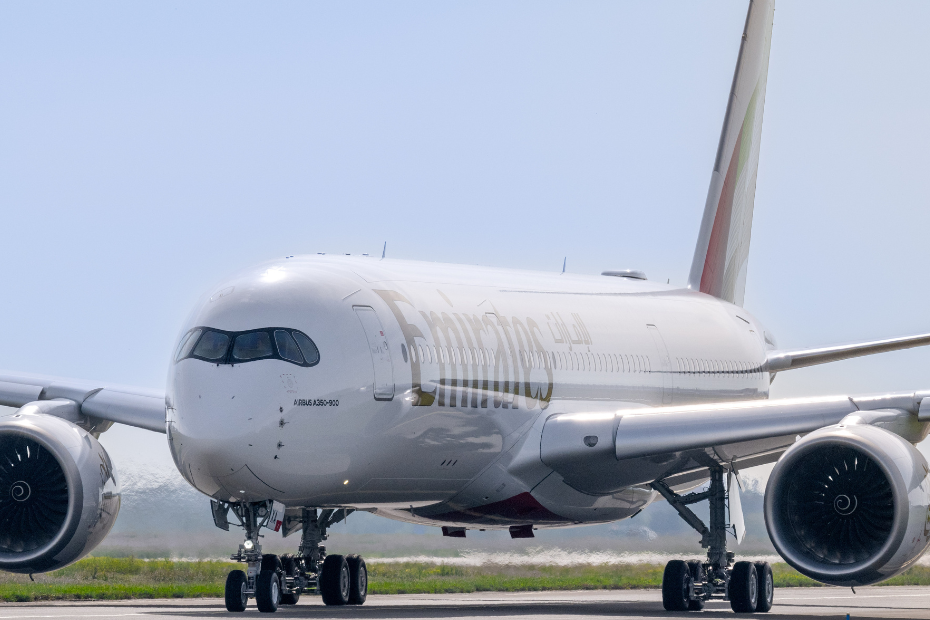
Emirates Airlines Welcomes First Airbus A350-900 to Its Fleet: A New Era in Aviation
Dubai, UAE – In a significant advancement marking the evolution of its fleet, Emirates Airlines has officially taken delivery of its inaugural Airbus A350-900 aircraft. The delivery, which took place on November 25, 2024, is part of a hefty order comprising 65 A350 units that the airline plans to receive in the forthcoming years. This event is particularly notable as it introduces a new aircraft type into the Emirates family for the first time since the introduction of the A380 in 2008.
The A350-900, designated with the registration number A6-EXA, embarked on its delivery flight from the Airbus facilities in Toulouse, France, at 16:00 local time, ultimately landing at Dubai International Airport (DXB) at 03:17 GST. This ferry flight not only showcases the connectivity of international aviation but also highlights the operational capabilities of Emirates as it expands its global footprint.
The A350-900, recognized for its advanced technology, spacious cabins, and improved fuel efficiency, is set to enter commercial service in January 2025. The aircraft’s inaugural flight will take passengers from Dubai to Edinburgh, with subsequent journeys planned to various destinations across the Middle East, West Asia, and Europe. The introduction of this aircraft is anticipated to enhance Emirates’ service offering, allowing for an increased capacity in key markets and a modern travel experience for its passengers.
Despite the excitement surrounding this delivery, the timeline for the A350’s entry into service has not been without challenges. Initially slated for delivery in August, the schedule faced delays that pushed the timeline to October. Such setbacks emphasize the complexities airlines face amid a highly competitive industry landscape driven by technological advancements and operational efficiencies.
Emirates has positioned itself as a major player in the global aviation sector, largely due to its extensive network that serves international markets without domestic routes. As such, the integration of the A350-900 and the anticipated Boeing 777X models is crucial for sustaining competitive advantage and ensuring fleet modernization. However, challenges have arisen on this front as well, with Emirates President Tim Clark publicly expressing frustration over a cumulative six-year delay in the delivery of the Boeing 777X, further complicating the airline’s expansion objectives.
In financial terms, Emirates has demonstrated resilience and growth, reporting a 2% increase in profit before tax for the first half of the fiscal year 2024/25, reaching Dhs 9.7 billion. The airline has witnessed a robust recovery in passenger traffic, with a reported 26.9 million passengers flown between April and September, reflecting a 3% increase compared to the previous year. This surge in passenger numbers can be attributed to a combination of factors including the overall rebound in global travel and the airline’s strategic operations out of its Dubai hub, which remains a pivotal international gateway.
The A350-900 is expected to play a significant role in further optimizing Emirates’ operational model, particularly through its fuel-efficient design that aligns with the global aviation industry’s increasing emphasis on sustainability. As airlines face growing pressure to reduce their carbon footprint, the A350’s advanced aerodynamics and innovative materials position Emirates not only to enhance profitability but also to meet environmental responsibilities.
As Emirates Airlines embarks on this next chapter with the addition of the A350-900, industry stakeholders and aviation enthusiasts alike will be closely watching how this new aircraft influences route dynamics, enhances passenger experiences, and contributes to the airline’s ongoing growth trajectory in a post-pandemic environment. The evolving landscape of global aviation will certainly continue to present both opportunities and challenges, but Emirates’ commitment to leveraging cutting-edge technology and expanding its fleet suggests a forward-thinking approach designed to maintain its status as a leader in the industry.
Tags: #BusinessNews, #EconomyNews, #UAE, #Aviation, #EmiratesAirlines

